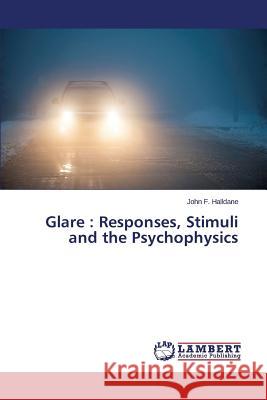Glare: Responses, Stimuli and the Psychophysics » książka
Glare: Responses, Stimuli and the Psychophysics
ISBN-13: 9783659607110 / Angielski / Miękka / 2014 / 100 str.
Glare is a response to light that impedes or impairs task performance. Contour brightness responses depend on a linear retinal receptor density and eye tremors across a contrasting pattern. These include responses that difference, sharpen, band, flicker, separate, or blur the detail we see... "disability glare." Area brightness responses depend on area densities which include photic reflexes, phototropic eyemovements, flare, to afterimages... "discomfort glare." Psychophysics relates each perceptual response with a set of physical stimuli. Correlations are modeled in lemmas as sequential systems involving the environment, ocular physiology, neural interactions, lateral inhibition, adaptation, eyemovements, to task performance. Systems are in calculus friendly exponential functions rather than the more difficult ones in lighting. Brightness relates to Luminance(power0.2). This process explains many response systems overlooked in research, lighting standards, design and task performance. It is beyond simple "discomfort" and "disability" glare. Responses are defined through reference stimuli and assessed by their task role. Do response cues detect, optimize, impede or impair a task?
Glare is a response to light that impedes or impairs task performance. Contour brightness responses depend on a linear retinal receptor density and eye tremors across a contrasting pattern. These include responses that difference, sharpen, band, flicker, separate, or blur the detail we see... "disability glare". Area brightness responses depend on area densities which include photic reflexes, phototropic eyemovements, flare, to afterimages... "discomfort glare". Psychophysics relates each perceptual response with a set of physical stimuli. Correlations are modeled in lemmas as sequential systems involving the environment, ocular physiology, neural interactions, lateral inhibition, adaptation, eyemovements, to task performance. Systems are in calculus friendly exponential functions rather than the more difficult ones in lighting. Brightness relates to Luminance(power0.2). This process explains many response systems overlooked in research, lighting standards, design and task performance. It is beyond simple "discomfort" and "disability" glare. Responses are defined through reference stimuli and assessed by their task role. Do response cues detect, optimize,impede or impair a task?











